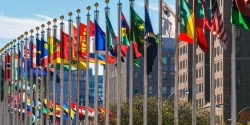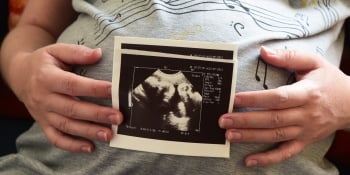Published: 19.12.2019

The Third Committee of the UN General Assembly, which deals with social, humanitarian and cultural issues, adopted a series of resolutions on matters such as children’s, women’s and family rights. Uncontroversial issues were once again mixed in with controversial references to vulgar sexual education and “reproductive and sexual rights”, which include promoting abortion. Once more, the United States expressed its strong objections, which helped partially thwart the attempts at including ideologically-motivated demands in the final documents.
The greatest success of the countries protecting life from conception was the erasure of all references to the killing of unborn children and what is referred to as “sexual and reproductive health and rights” (SRHR) from the resolution on combating violence against women (A/C.3/74/L.22/Rev.1). The Philippine delegation, which was responsible for the content of the resolution, stated clearly that it could not accept a text which refers to abortion as legal. This marks a change compared to the previous position, according to which SRHR should be included as a term used in documents on violence against women issued by the UN General Assembly.
However, similar efforts of the U.S. delegation failed in relation to the resolutions on children’s rights adopted on the 30th anniversary of the Convention on the Rights of the Child and matters related to engaging young people. The European Union (including Poland) and many other countries objected to the amendments proposed by the United States, which opposed permissive sexual education and replaced it with family-centred education instead, which emphasises the leading role of parents. The argumentation used in favour of the amendments included false arguments according to which sexual education and sexual and reproductive rights were terms which had long been in use internationally, which is a manipulation as demonstrated by the failure that was the recent Nairobi Summit. The resolution also included passages according to which family can allegedly assume a myriad of forms.
The UN has long been employing a strategy which mixes ideology with proposals on how to combat real and important problems. This time was no exception – the resolution celebrating the 30th anniversary of the Convention on the Rights of the Child concerned the automatic and frequently too drastic separation of children and parents. It was emphasised that poverty cannot be the only reason to take a child away from their parents. Moreover, states should implement mechanisms which ensure that separated parents and children can remain in contact, provided that it is in the best interest of the child to do so.
The Third Committee adopted a total of 15 resolutions on the 18 of November. The UN General Assembly, to which the committee is subsumed, is one of the six main organs of the UN and is referred to as the Parliament of Nations. The resolutions it adopts are not legally binding, tough they play an important role in interpreting binding international treaties adopted by UN members.
“It is our hope that Poland joins the UN countries opposed to sexual education and the controversial issue of ‘sexual and reproductive rights’. Currently, thanks to the consistent efforts of the U.S. to push for the protection of life in the UN, we have a fighting chance to positively influence the documents adopted by the institution – so that they protect life from conception, the rights of parents, children and the family,” says Karolina Pawłowska, Director of the Ordo Iuris Centre for International Law.

· The European Parliament adopted a resolution calling for the inclusion of the so-called right to abortion in the Charter of Fundamental Rights of the European Union.

· The anti-life projects proposed by our ruling coalition are only the beginning of a political process leading to the normalisation of the mass killing of unborn children.
· The French law of 1974, which was only supposed to open the floodgates to prenatal killing for women in distress, in fact established a new legal foundation through which almost a quarter of a million children lose their lives in France every year.

· Abortion advocates manipulate human rights slogans which remain relevant to Polish citizens in order to force the public into supporting abortion.